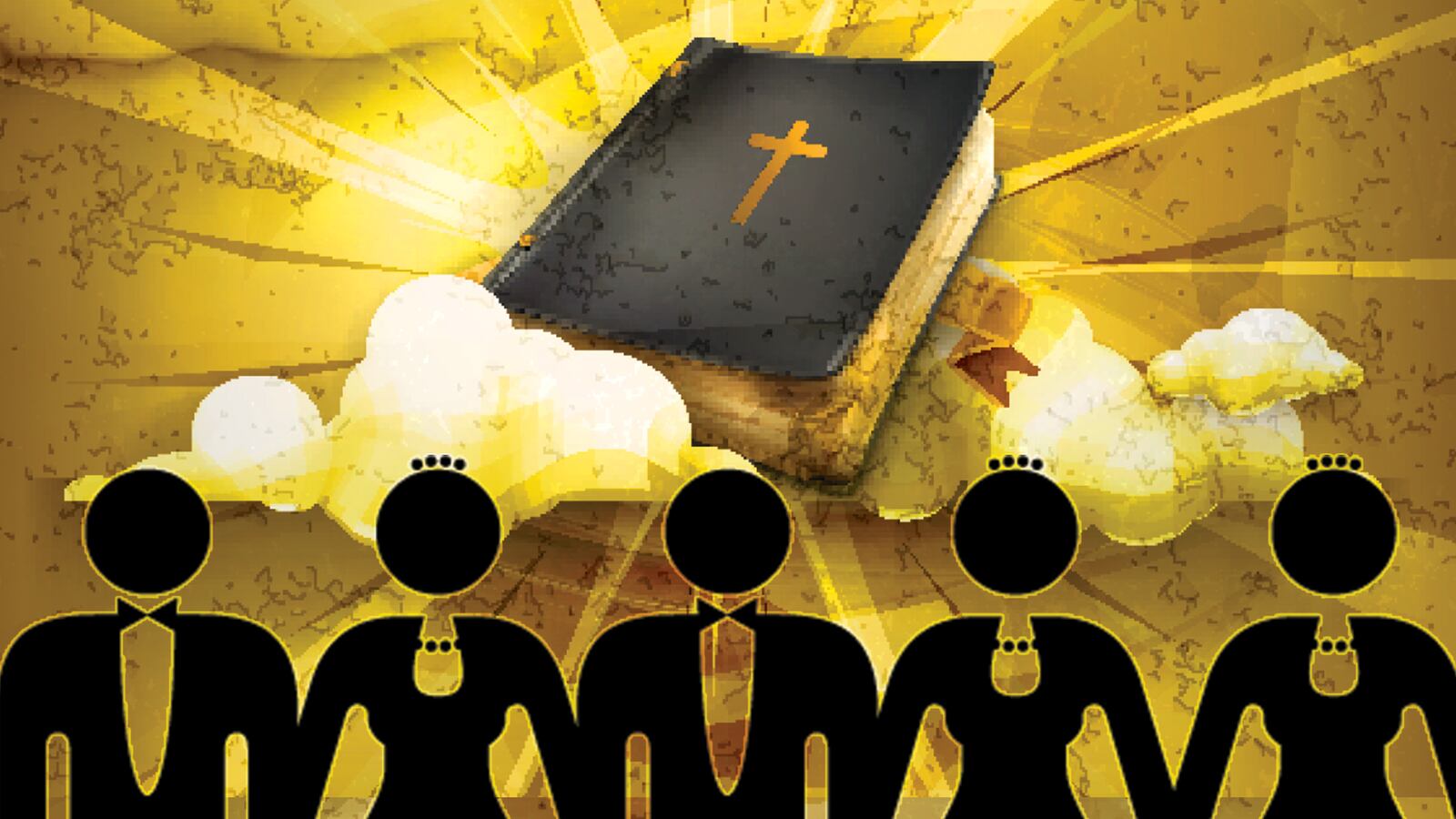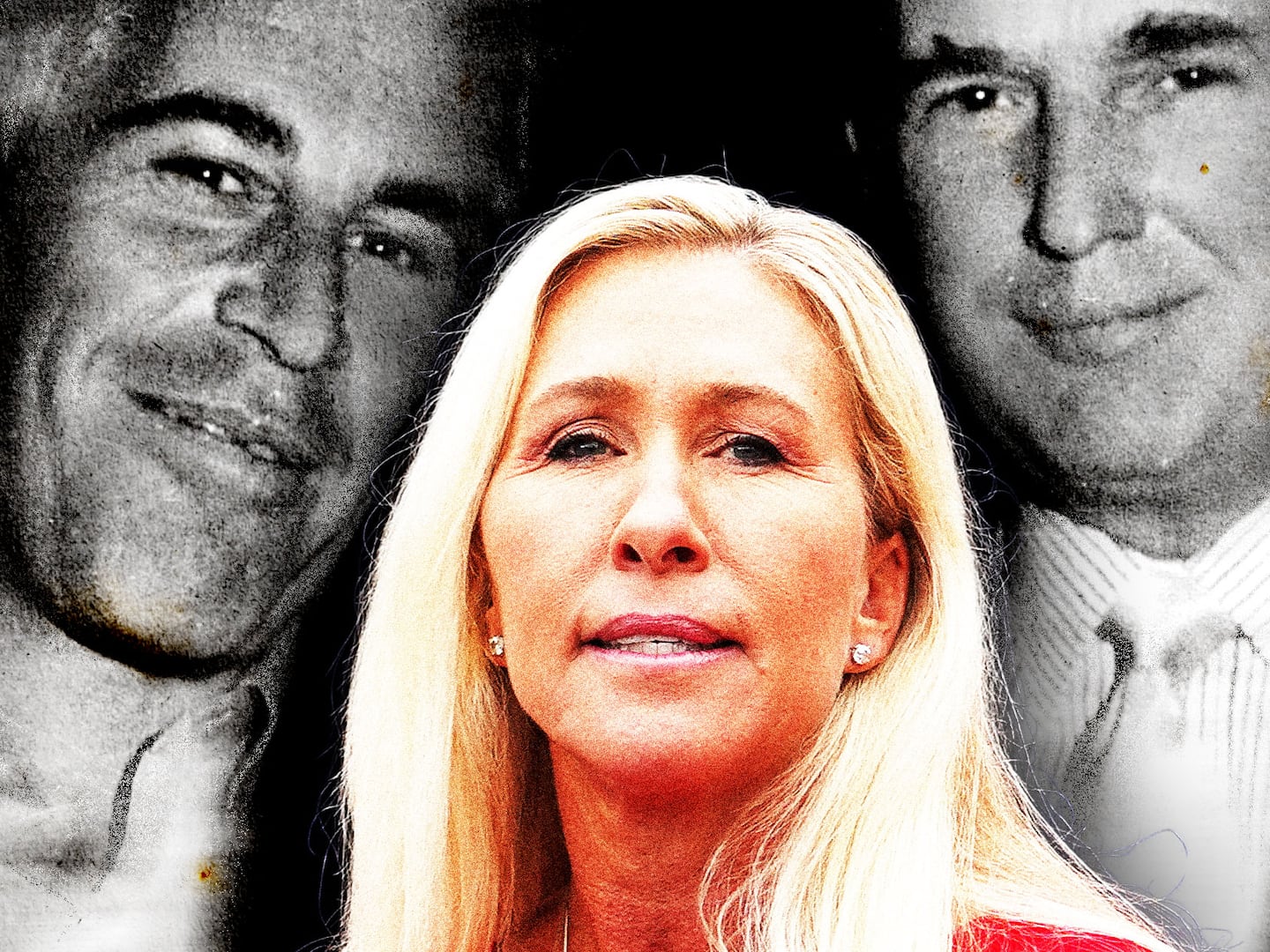“I’m probably the only little girl who fantasized about meeting her handsome prince and having him sweep her off feet—and then falling in love with another guy,” Cunning Minx tells me with a laugh.
It’s a rosy, even wholesome way of framing her first childhood indications that she would ultimately identify with polyamory, a term Merriam-Webster defines as “the state or practice of having more than one open romantic relationship at a time.”
People who identify as polyamorous, like Minx—a sex educator who uses the pseudonym professionally, including for Poly Weekly, a podcast “devoted to tales from the front of responsible non-monogamy”—would likely pick a bone with that rather sterile definition.
According to the website for Loving More, the leading national support and advocacy group for the polyamorous community, “Polyamory refers to emotionally connected relationships openly involving three or more people. It is about honesty, integrity and respect.”
I would venture that most Americans would not be familiar with either of those definitions of polyamory. Many may not have even heard of the term.
Despite a Showtime reality television show and Loving More’s 25,000-strong database of members, polyamory is still a relatively unheard of relationship construct.
To those who have heard of polyamory, the concept is surrounded in stigma, often conflated with “swingers.”
In fact, proponents of polyamory (or just “poly” as it is colloquially referred to) are quick to point out sex with multiple people is by no means a requisite.
The term “polyamory” is “intended to differentiate emotionally connected relationships from simple coupling, casual dating around, or recreational sex,” according to the Loving More website.
Not that most of America is aware of these nuances.
Case in point: when I told a colleague, a thirty-something New Yorker, about polyamory, he said he had never encountered the term and assumed it was a form of polygamy, like the kind practiced by fundamentalist Mormons.
If anything, members of the poly community sound less like Joseph Smith and more like John Humphrey Noyes, who founded the free love Oneida community in upstate New York in 1848.
Noyes declared monogamy was “a tyrannical institution that did not exist in Heaven and eventually would be abolished on earth.”
Not only do poly people soundly reject monogamy as the only acceptable form of romantic relationship in much the way Noyes did, but many also have that same, shall we say, fervor.
While polyamory is not yet widely seen as a legitimate orientation—yes, that’s the term many of the advocates I spoke to used—in more socially progressive circles where poly is beginning to gain greater acceptance, many of poly people are remarkably evangelical.
In the same way that proponents of CrossFit and IUD’s love to preach their gospel, many in the polyamorous community have that same verve, passion, and, at times, a bit of a self-righteousness.
Polyamory comes with its own set of Bible-thumpers, so to speak.
They won’t tell you to read the King James, but they will tell you to read The Ethical Slut, Dossie Easton’s and Jane W. Hardy’s relationship guidebook that is considered the polyamory bible. Published in 1997, it is considered the first relationship book to positively tackle the challenges of polyamory and present how polyamory can be practiced in a moral, thoughtful way with respect for the multiple parties involved.
Robert McGarey, a man who has identified as polyamorous for 34 years, says he’s “become more emotionally involved as an activist because I’ve seen the damage done by the belief that the only way to do a relationship properly, ethically is monogamously.”
McGarey, who is the director of the Human Potential Center, a non-profit devoted to fostering personal growth, truly believes that the monogamy can cause concrete harm.
He recalls how his father’s secretary was killed by her jealous ex-husband for seeking a divorce. This is a death that he believes could have been avoided through polyamory.
“Lives have been damaged. Rampant jealousy destroys lives across America. It creates murderers,” he says of monogamy’s dominance.
While he doesn’t think polyamory is for everybody, McGarey certainly doesn’t think monogamy is either, and he wants to spread the gospel. In fact, he thinks the polyamorous view towards jealousy “could potentially radically transform American society.”
Poly proponents preach that the inevitable jealousy that results form dating multiple should not be ignored, but rather, owned, recognized, and studied to realize what deeper insecurity or problem is bothering you.
“Approach jealousy not as a terrible thing, but as a gift of self-awareness,” McGarey says.
It’s an intriguing concept. People are certainly questioning traditional monogamy, with a record number of American adults foregoing marriage.
Moreover, the defensive fervor exhibited by some in the poly community is even more understandable when one considers the social backlash, as well as familial and professional costs they risk for coming out as poly.
Katie Zavadski wrote for this publication just last week about poly parents’ often expensive and long-fought struggles to maintain custody of their kids.






